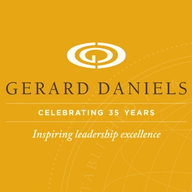In June 2023 the International Sustainability Standards Board (ISSB) issued its first two mandatory sustainability disclosure standards. When they take effect, these standards will create a single global reporting framework to inform decision making in the capital markets.
“Investment decisions are increasingly influenced by sustainability performance, but without consistent and reliable reporting, well-informed decisions cannot be made,” says Siobhan Ferreira, a Principal for Gerard Daniels. “These new standards create a global baseline for sustainability and climate-related disclosures and provide a comprehensive and reliable view of this type of risk and opportunity for shareholders and investors. Mandatory reporting may also raise the bar for innovation and create the transparency that is needed to replace greenwashing with real action, and climate risk and impact reduction.”
Here we take a closer look at these standards; who they will impact; and how business leaders can prepare for this transition.
What are the new IFRS Sustainability Disclosure Standards?
The inaugural standards consist of two parts:
- IFRS S1 is a general standard that outlines the reporting requirement for sustainability disclosures across four key reporting areas: governance; strategy; risk management; and metrics and targets.
- IFRS S2 outlines required climate-related disclosures and provides more detailed guidance on each of the four reporting areas.
These standards consolidate and build on other existing regional standards, frameworks and metrics, to create an international baseline of sustainability disclosures. Detailed information can be found on the IFRS Foundation website.
Who do the standards affect?
These standards apply to any organisation currently required to produce an annual financial report.
“For a long time, investors and regulators have been calling for better consistency, accuracy and transparency around sustainability and climate-related financial reporting,” says Siobhan. “Although the introduction of these standards is welcomed by these sectors, adhering to these standards will be challenging for many organisations – an issue that will be high on the agenda for many Boards and leadership teams worldwide.”
When do the standards commence?
The sustainability disclosure standards will take effect for annual reporting periods beginning on or after 1 January 2024, however local jurisdictions will determine how, when and also whether these standards will apply.
“The lead up to January 2024 will be an important time for businesses to be thinking about what needs to happen,” says Siobhan. “As with any significant regulatory change, there will be a grace period. But organisations that want to get ahead won’t wait for this reprieve, they will already be thinking about, planning and fine-tuning their approach.”
How can you prepare?
The introduction of the sustainability disclosure standards represents a steep learning curve for many organisations, and a significant change in their current approach to reporting on financial risks and opportunities. “Many of our clients are already invested in understanding their requirements; aligning their systems and processes; upskilling and aligning their finance and ESG teams, as well as their management teams and Board members; and looking to the market for talent to support this transition where there is a knowledge gap,” says Siobhan.
Here are some other important considerations in preparing for this change.
Knowledge is power
“Understanding the requirements will be one of the biggest challenges for businesses in moving smoothly through this transition,” says Siobhan. “As well as developing capability to deliver on these standards, leaders should seek to grow their own understanding of the requirements, and of the sustainability and climate-related risks and opportunities that relate to their organisation.”
Did you know? Many peak industry bodies, chartered accounting associations and other training institutions now offer informational sessions to help bring finance professionals and business leaders up to speed.
Prepare in-house systems, capability and strategy
Sustainability and climate-related disclosures must be provided at the same time, and to the same high standard as existing annual financial statements. To achieve this:
- Organisations will need to have well-developed sustainability strategies and a solid understanding of sustainability and climate-related risks and opportunities and what they mean to the organisation.
- Thought must go into how existing financial systems and processes will cater for and align with additional climate and sustainability reporting requirements.
- Skills gaps must also be addressed, and leaders must consider whether to upskill internally; to outsource; or recruit specialist expertise.
A career defining opportunity?
For senior professionals with strong finance or ESG capabilities, the introduction of these standards could present career enhancing opportunities.
“In my own professional network, I’ve already seen individuals take this opportunity to grow their expertise in this niche area, and to differentiate themselves for future leadership roles,” says Siobhan. “If you are considering specialising in this area, think about how you can personally close the knowledge gap so that you don’t get left behind.’’
Seek expert advice
Siobhan reports growing interest from clients and candidates in the new disclosure standards. “When significant change is happening, it can be an exciting time to be working in that space, and candidates are increasingly asking for practical advice on how they can be more appealing and stand out as leaders in this field,” says Siobhan. “Clients are also looking to utilise our growing talent networks.”
“We understand the importance of delivering on the new IFRS standards,” Siobhan continues. “This allows us to guide candidates in their development and to advise and connect clients with exceptional talent to lead them through this journey.”
To find out more about the new sustainability disclosure standards and how to navigate this change, connect with Siobhanor reach out to your local Gerard Daniels team.







